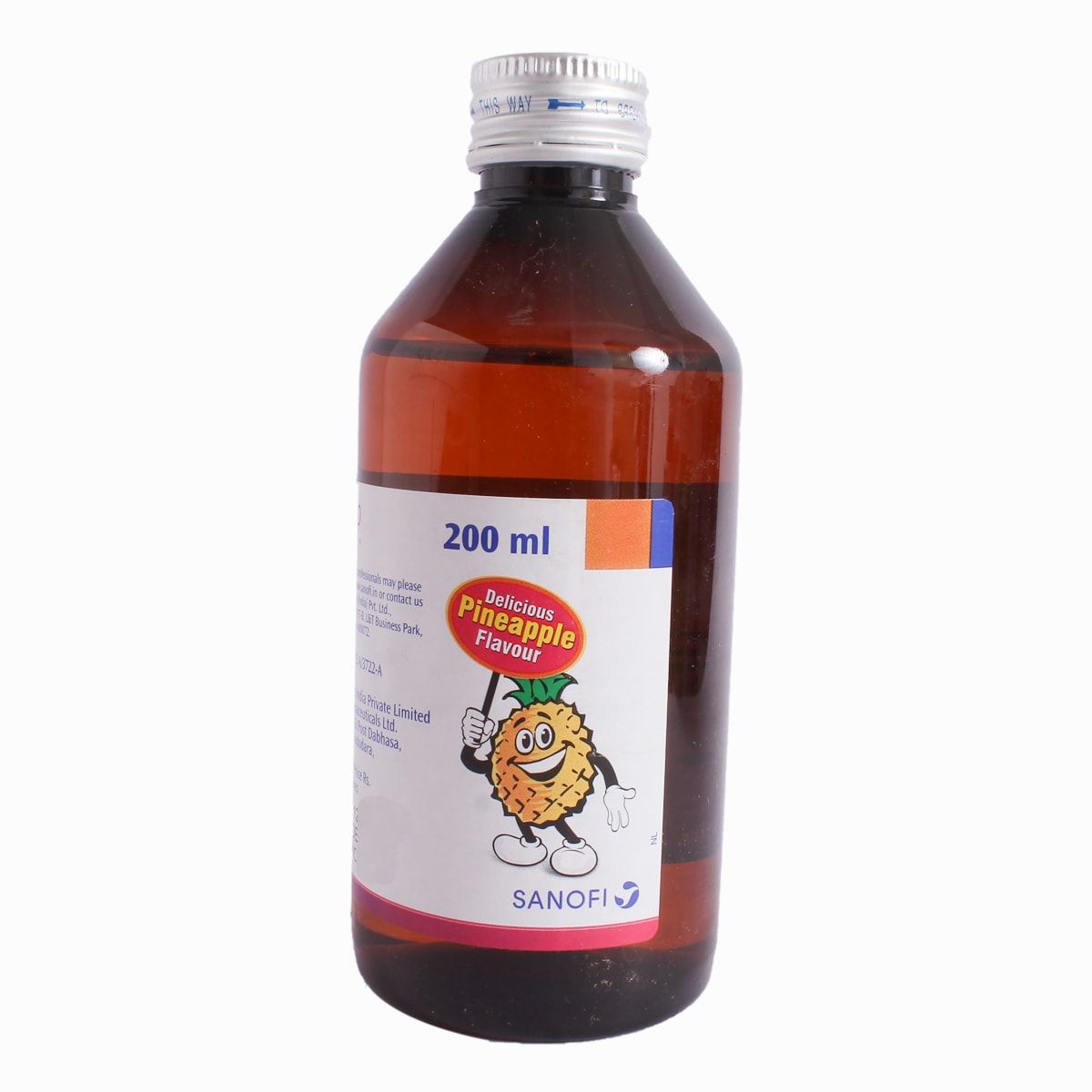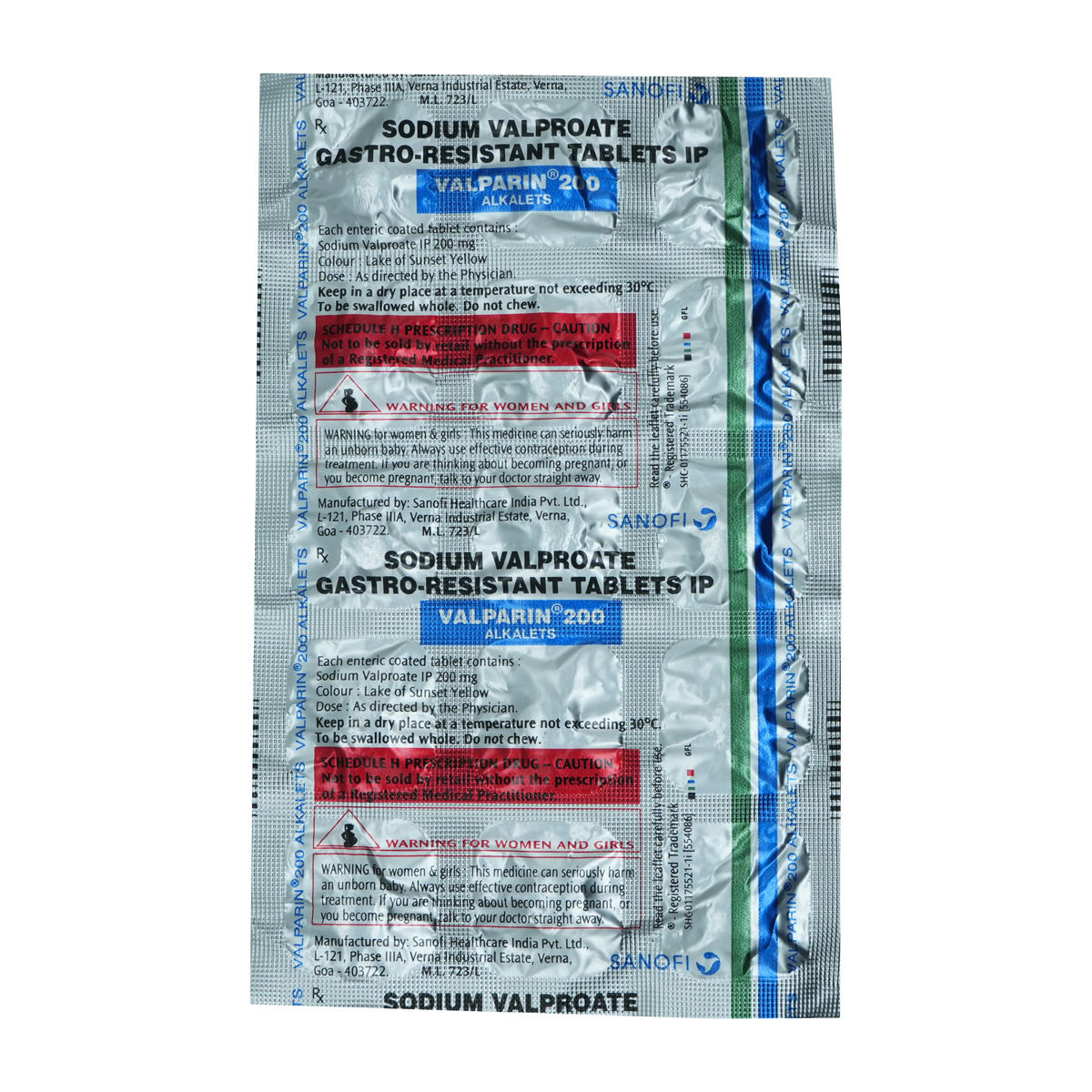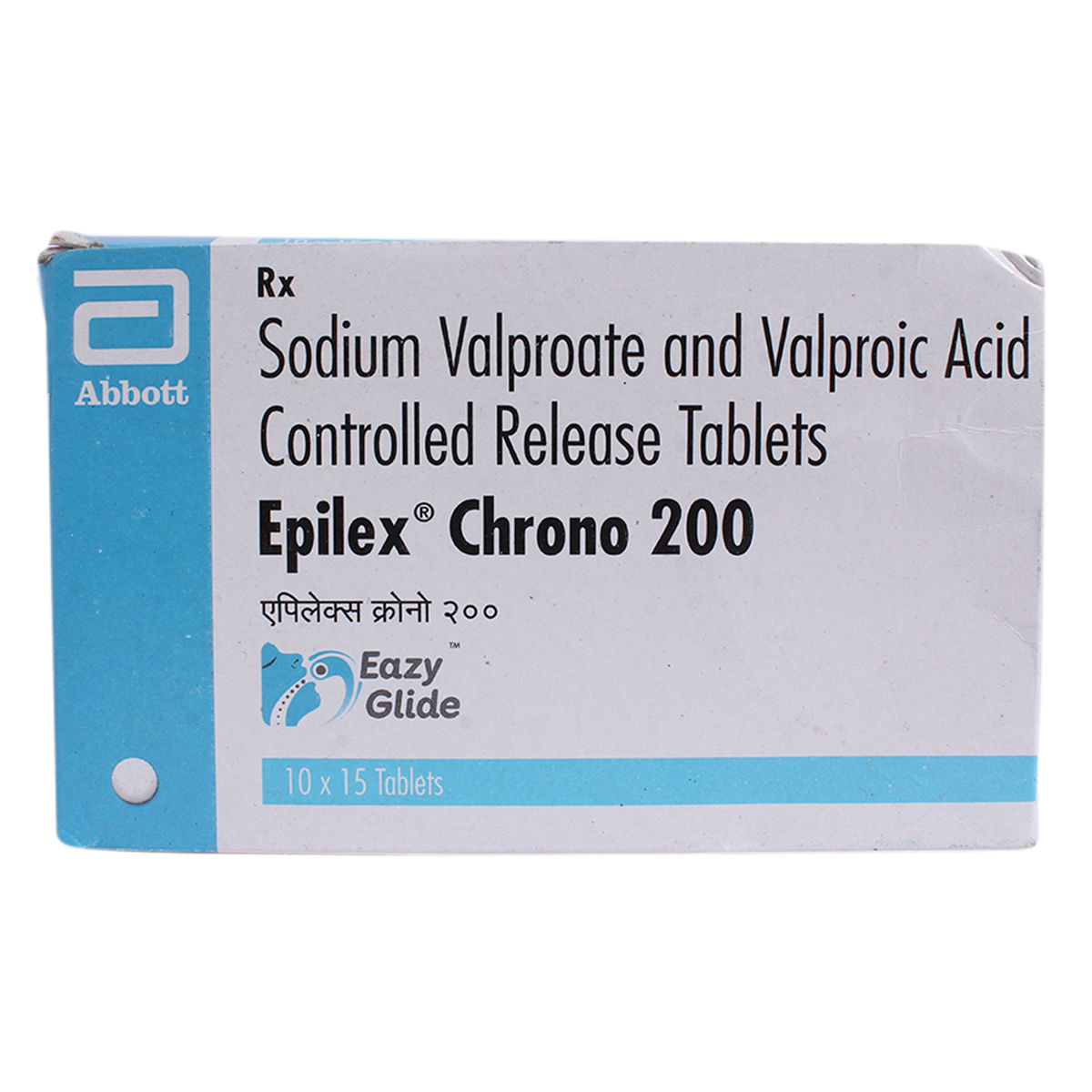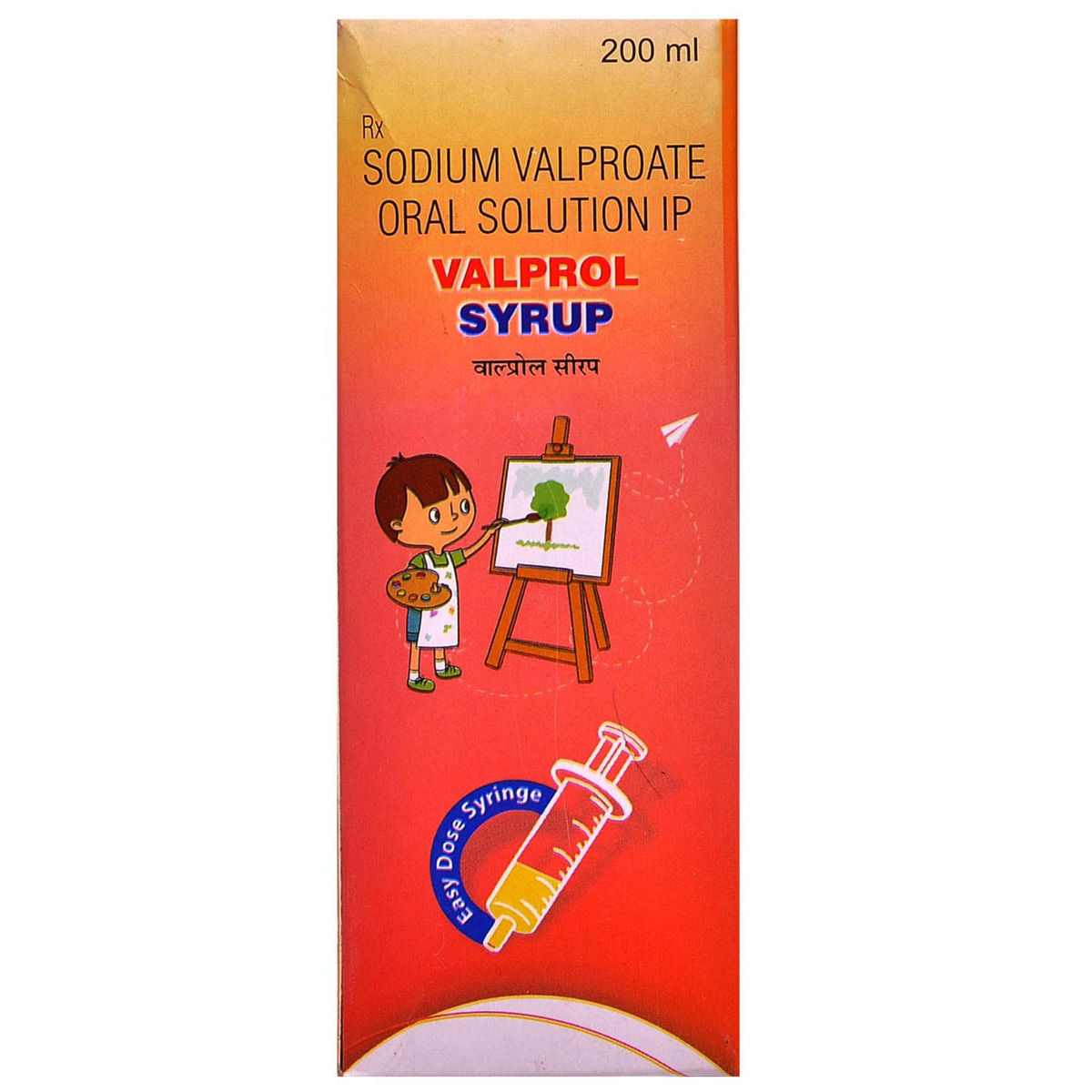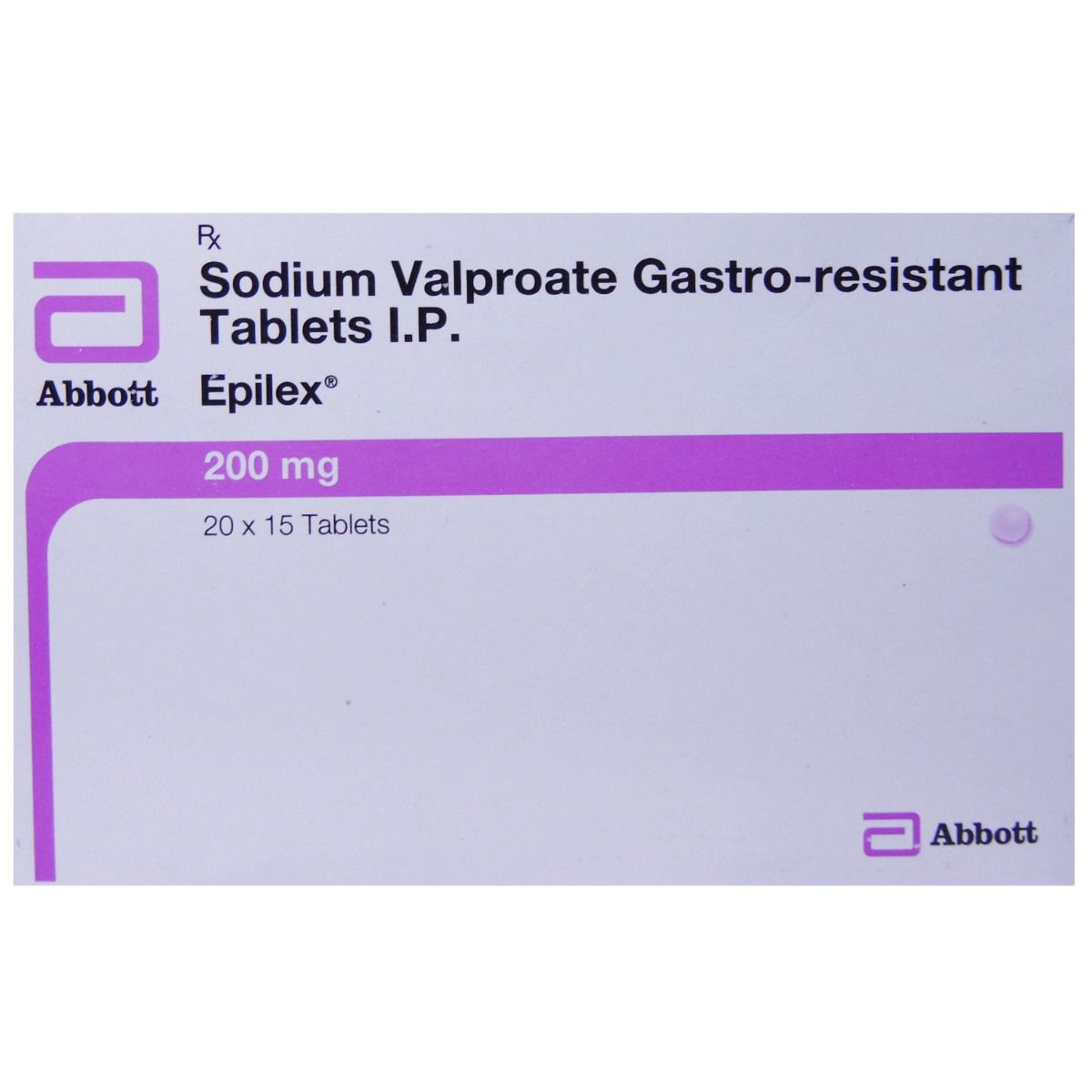Valrate Syrup 100 ml
Valrate Syrup is used to treat epilepsy/seizures/fits and bipolar disorder. It contains 'Sodium valproate', which decreases the brain's excessive and abnormal nerve activity. Thus, it helps in controlling seizures. On the other hand, it increases the amount of a chemical substance called GABA; this helps block nerve transmission across the brain and provides a calming effect. Thus, it helps treat bipolar disorder.
₹65.3*
MRP ₹72.5
10% off
₹61.62*
MRP ₹72.5
15% CB
₹10.88 cashback(15%)
Free Delivery
With Circle membership
(Inclusive of all Taxes)
This offer price is valid on orders above ₹800. Apply coupon PHARMA10/PHARMA18 (excluding restricted items)
Know Your Delivery Time
Provide Delivery Location

Available Offers
 Prescription drug
Prescription drugWhats That
 16 people bought
16 people bought 
Secure Payment

India's Most Trusted Pharmacy

Genuine Products
Synonym :
Composition :
Manufacturer/Marketer :
Consume Type :
Return Policy :
Expires on or after :
About Valrate Syrup
Valrate Syrup is used to treat epilepsy/seizures/fits and bipolar disorder. Epilepsy is a sudden rush of electricity in the brain. In epilepsy, the brain's electrical rhythms become imbalanced, resulting in recurrent seizures, sometimes leading to an unconscious state.
Valrate Syrup contains 'Sodium valproate', which decreases the brain's excessive and abnormal nerve activity. Thus, it helps in controlling seizures. Valrate Syrup increases the amount of a chemical substance called GABA; this helps block nerve transmission across the brain and provides a calming effect. Thus, it helps treat bipolar disorder.
Use Valrate Syrup as prescribed by your doctor. Sometimes, it may cause certain side effects such as stomach pain, nausea, vomiting, dry mouth, tremors, tiredness, sleepiness, headache, weight gain, and hair loss. Most of these side effects do not require medical attention and will resolve gradually. However, if the side effects persist or worsen, inform your doctor immediately.
Before using Valrate Syrup , inform your doctor about your children's medical conditions, sensitivities, and all medications used. To treat your condition effectually, continue using Valrate Syrup for as long as your doctor has prescribed. Valrate Syrup should be gradually withdrawn, so please do not stop using Valrate Syrup without consulting your doctor. Consult your doctor immediately if you observe any suicidal tendencies in your children.
Uses of Valrate Syrup
Directions for Use
Medicinal Benefits
Sodium valproate reduces the brain's excessive and unusual nerve activity. On the other hand, it helps to raise the quantity of a chemical substance called GABA in the brain, which helps to stop nerve transmission and has a calming effect. Thus, it aids in the treatment of epilepsy, seizures, and fits, as well as bipolar disorder.
How Valrate Syrup Works
Storage
Side Effects of Valrate Syrup
- Feeling or being sick
- Feeling tired or sleepy
- Stomach pain
- Diarrhoea
- Dry or sore mouth
- Swollen gums
- Shakes (tremors) in a part of your body
- Unusual eye movements
- Headache
- Weight gain
What if I have taken an overdose of Valrate Syrup
Drug Warnings
The presence of other medical problems or using other medications may affect the use of this medicine. So, before using Valrate Syrup , let your doctor know about all your children's medical conditions, sensitivities, and all medications used. Do not use this medication on your own unless prescribed by the doctor. Do not exceed the stated recommended dose.
Drug-Drug Interactions
Drug-Drug Interactions
Login/Sign Up
Combining Sodium phenylbutyrate and Valrate Syrup 100 ml can increase ammonia levels in the blood.
How to manage the interaction:
Taking Sodium phenylbutyrate with Valrate Syrup 100 ml is not recommended, but it can be taken if prescribed by a doctor. If you experience any symptoms like sudden dizziness, lightheadedness, fainting, headache, shortness of breath, nausea, vomiting, chest pain or tightness, rapid heartbeat, or memory loss, contact your doctor immediately. Do not discontinue any medications without consulting a doctor.
Co-administration of Teriflunomide and Valrate Syrup 100 ml can increase the risk of causing liver problems.
How to manage the interaction:
Co-administration of Teriflunomide and Valrate Syrup 100 ml can lead to an interaction, it can be taken if advised by your doctor. However, if you experience any symptoms like fever, chills, joint pain or swelling, unusual bleeding or bruising, skin rash, itching, loss of appetite, fatigue, nausea, vomiting, abdominal pain, dark-colored urine, light-colored stools, and yellowing of the skin or eyes. Avoid alcohol while taking these medications, and consult your doctor immediately. Do not discontinue any medications without consulting your doctor.
Co-administration of Leflunomide and Valrate Syrup 100 ml can increase the risk of causing liver problems.
How to manage the interaction:
Co-administration of Leflunomide and Valrate Syrup 100 ml can lead to an interaction, they can be taken together if prescribed by a doctor. However, if you experience fever, chills, joint pain or swelling, unusual bleeding or bruising, skin rash, itching, less desire to eat, fatigue, nausea, vomiting, abdominal pain, or yellowing of the skin or eyes, contact a doctor immediately. Do not discontinue any medications without consulting a doctor.
Co-administration of Meropenam and Valrate Syrup 100 ml together can reduce the effect of Valrate Syrup 100 ml.
How to manage the interaction:
Co-administration of Meropenam and Valrate Syrup 100 ml can lead to an interaction, but it can be taken if your doctor advises. However, if you experience any unusual symptoms, consult a doctor immediately. Do not discontinue any medications without consulting a doctor.
Co-administration of Ketamine and Valrate Syrup 100 ml can increase side effects and cause respiratory depression.
How to manage the interaction:
Co-administration of Ketamine and Valrate Syrup 100 ml can lead to an interaction, but it can be taken if your doctor advises. However, consult your doctor immediately if you experience any symptoms like dizziness, drowsiness, confusion, difficulty concentrating, excessive sedation, impaired thinking, judgment, and motor coordination. Avoid driving or operating hazardous machinery until you know how these medications affect you. Do not discontinue any medications without consulting the doctor.
The combined use of Ertapenem and Valrate Syrup 100 ml can reduce the blood levels of valproic acid.
How to manage the interaction:
Co-administration of Ertapenem and Valrate Syrup 100 ml can lead to an interaction, it can be taken if advised by your doctor. However, if you experience any symptoms like loss of seizure control or changes in behavior, consult your doctor immediately. Do not discontinue any medications without consulting the doctor.
Co-administration of Valrate Syrup 100 ml with doripenem can reduce the blood levels of valproic acid.
How to manage the interaction:
Co-administration of Doripenam and Valrate Syrup 100 ml can lead to an interaction, it can be taken if advised by your doctor. However, if you experience sudden dizziness, lightheadedness, fainting, shortness of breath, chest pain or tightness, rapid heartbeat, involuntary muscle movements, or memory loss, contact your doctor immediately. Do not discontinue any medications without consulting a doctor.
Using buprenorphine together with Valrate Syrup 100 ml may increase the risk of severe side effects, including respiratory problems and loss of consciousness.
How to manage the interaction:
Although the administration of buprenorphine alongside Valrate Syrup 100 ml can result in an interaction, it can be taken if a doctor has advised it. However, if you experience sudden dizziness, lightheadedness, fainting, shortness of breath, chest pain or tightness, rapid heartbeat, or memory loss, contact a doctor immediately. Do not discontinue any medications without consulting a doctor.
Co-administration of Lithium with Valrate Syrup 100 ml can increase the risk irregular heart rhythm.
How to manage the interaction:
Co-administration of Lithium and Valrate Syrup 100 ml can lead to an interaction, but it can be taken if advised by your doctor. However, consult your doctor immediately if you experience any symptoms like dizziness, drowsiness, confusion, lightheadedness, fainting, shortness of breath, chest pain or tightness, rapid heartbeat, and difficulty concentrating. Do not discontinue any medications without consulting a doctor.
Co-administration of Vorinostat with Valrate Syrup 100 ml can increase the risk of unusual bleeding.
How to manage the interaction:
Co-administration of Vorinostat and Valrate Syrup 100 ml can lead to an interaction, it can be taken if advised by your doctor. However, if you experience any symptoms like unusual bleeding or bruising, vomiting, blood in your urine or stools, headache, dizziness, or weakness, consult your doctor immediately. Do not discontinue any medications without consulting your doctor.
Drug-Food Interactions
Drug-Food Interactions
Login/Sign Up
Diet & Lifestyle Advise
- A ketogenic diet (low in carbohydrates and high in fats) is recommended for children with epilepsy. This diet helps utilise fat instead of glucose for energy generation.
- Have a seizure response plan, and help those around you know what to do.
- Prepare your children's living area; small changes may reduce the risk of physical injury during a seizure.
- Understand what triggers seizures are and try reducing or avoiding them.
- Install an alarm or emergency device to get assistance during a seizure attack.
- Let your child rest well and sleep well.
Habit Forming
Therapeutic Class
Valrate Syrup Substitute

Valparin 200 Delicious Pineapple Oral Solution 200 ml
by AYUR
₹0.65per tabletValparin Oral Solution 200 ml
₹0.65per tabletEncorate Oral Solution 200 ml
by AYUR
₹0.66per tabletValparin 200 Alkalets Tablet 15's
₹3.60per tabletEpilex Chrono 200 Tablet 15's
by AYUR
₹9.24per tablet
Product Substitutes
Alcohol
Not applicable
It is intended for Children.
Pregnancy
Not applicable
It is intended for Children.
Breast Feeding
Not applicable
It is intended for Children.
Driving
Not applicable
It is intended for Children.
Liver
Caution
Inform your doctor if your child has liver problems. Your doctor will prescribe only if the benefits outweigh the risks.
Kidney
Caution
Inform your doctor if your child has kidney problems. Your doctor will prescribe only if the benefits outweigh the risks.
Children
Safe if prescribed
Valrate Syrup can be given safely to children. Give this medicine to your child in the doses as prescribed by the doctor.
FAQs
Country of origin
Manufacturer/Marketer address
Disclaimer
Author Details
We provide you with authentic, trustworthy and relevant information







